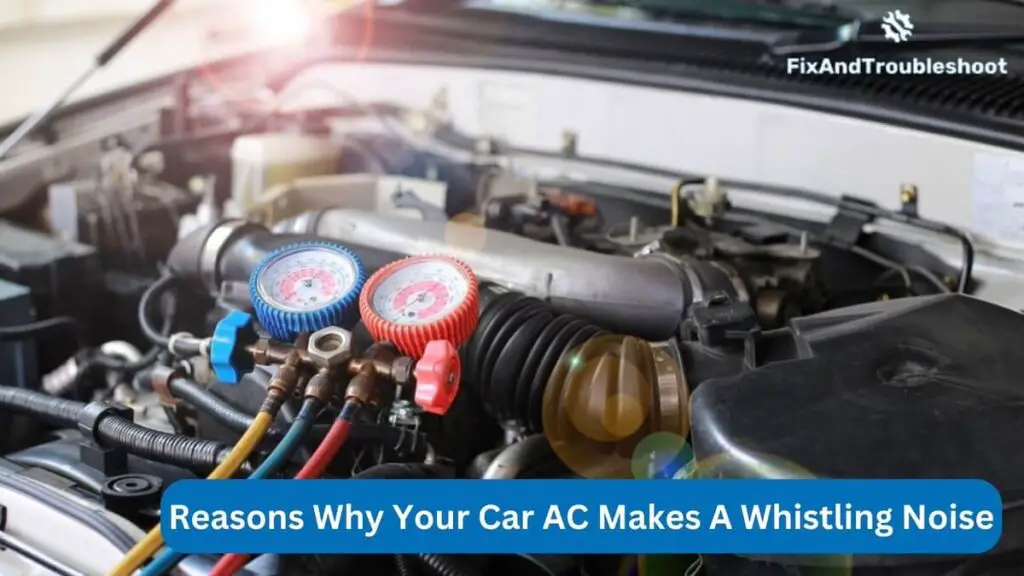It can be unsettling to hear a whistling noise when you turn on your car’s AC on a hot day. Sometimes, the AC starts making this whistling noise immediately after it’s turned on. Other times, the noise starts after a few seconds.
Whichever way you’re experiencing it, I’ll explain the causes and show how to get it fixed.

Refrigerant Leak
Damaged pipes or worn-out seals can cause your car’s AC refrigerant to leak. As the refrigerant leaks, you’ll hear a whistling noise from your AC system.
To prevent refrigerant leaks, ensure you service your AC system often. Replace the AC filter and check your refrigerant level to make sure it’s at the normal level.
Clogged AC Compressor
The AC compressor circulates refrigerant through the system. When it struggles to do this, pressure will build up and you’ll hear a whistling noise.
Clogged Expansion Valve
The expansion valve controls the flow and pressure of the refrigerant. When it’s affected by a blockage, you’ll hear a whistling noise from your AC system.
Malfunctioning Compressor Clutch
The compressor clutch engages and disengages the compressor. Issues within can cause the AC system to make a whistling or hissing noise.
Failing Blower Motor
If the blower motor is struggling to move air through your AC system, it’ll result in a whistling noise.
Conclusion
Knowing why your car’s AC whistles can prevent discomfort. Getting it fixed, whether it’s a hose or a more complex problem, ensures a smoother, quieter ride.
